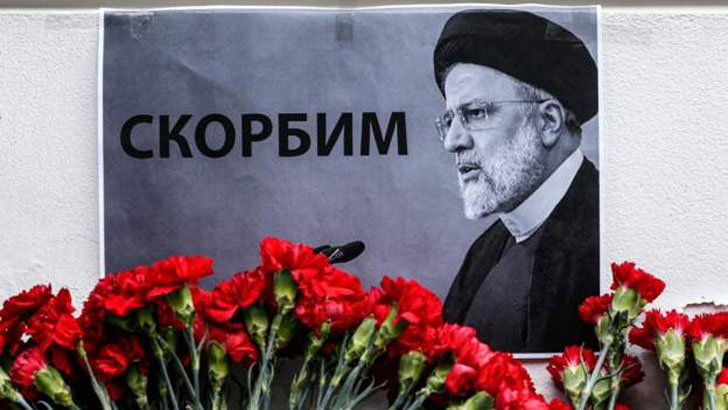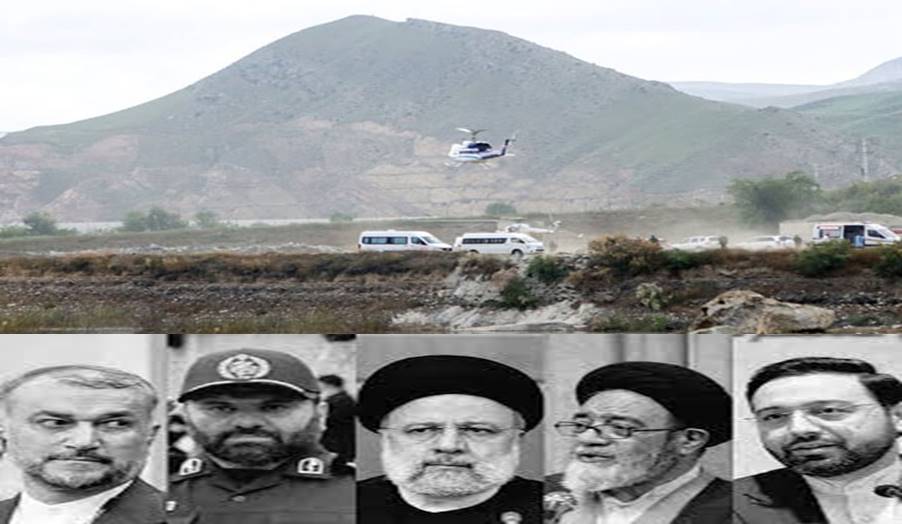Will India return Sheikh Hasina in the murder case? What is in the Dhaka-Delhi agreement?


Published: 06:07 13 August 2024
Will India return Sheikh Hasina in the murder case? What is in the Dhaka-Delhi agreement?
A case has been filed against seven people including former Prime Minister Sheikh Hasina for the murder of grocery shopkeeper Abu Sayeed. The other accused in the case are former Transport and Bridges Minister Obaidul Quader, former Home Minister Asaduzzaman Khan Kamal, former IGP Abdullah Al Mamun, DMP Commissioner Habibur Rahman, Additional Commissioner Harun-or-Rashid and Joint Commissioner Biplab Kumar.
Sheikh Hasina fled the country and went to India in the face of the revolution of the students on August 5. He is currently believed to be in Delhi, the capital of India. Because even if there is a plan to escape from Bangladesh and go to another country through India; The former prime minister could not do that.
Now a murder case has been filed against him in Bangladesh. An arrest warrant will be issued against him as the next step to face trial.
The question is whether India will return Hasina who is staying in Delhi to face trial? Does Bangladesh have any such agreement with the country?
There is a related information on the website of the Ministry of External Affairs of India. The information was published on 11 August 2016.
It states that India has extradition (return of accused of crimes) agreement with Bangladesh and Nepal among the SAARC countries. Besides, there is an extradition arrangement with Sri Lanka. In addition to these bilateral agreements, the SAARC Regional Conference on Counter-Terrorism Agreement was signed in 1987. An Additional Protocol to the Agreement was signed in 2004. It was aimed at strengthening the criminalization of fundraising, provisions for use in counter-terrorism operations.
The agreement also aimed to take more measures against such activities and financing.
Regarding the extradition treaty with Bangladesh, the Ministry of Foreign Affairs of the country said in that information - On July 28, 2016, Bangladesh and India entered into an agreement to amend Article 10 (3) of the existing extradition treaty. The aim of this agreement is to extradite fugitives of the two countries in a speedy time.
It also says that India will enter into agreements with as many countries as possible so that no fugitive accused remains beyond the ambit of prosecution.
According to the information of the Indian Ministry of External Affairs, the extradition agreement was signed with Bangladesh on January 28, 2013 during the visit of their Home Minister to Dhaka. It is also said to help reduce crime between law enforcement agencies of the two countries.
Only if there is an arrest warrant
The extradition treaty signed between Bangladesh and India in 2013 was amended in 2016. In that amendment, it is said that if someone has to be extradited between the two countries, then only if there is a police arrest warrant.
The amendment was made in the presence of then Indian Home Minister Rajnath Singh and former Bangladesh Home Minister Asaduzzaman Khan Kamal.
A week before the agreement, former Prime Minister Sheikh Hasina presided over the cabinet and approved the amendment.
The amendment also states that no evidence shall be required to extradite a suspected criminal. If someone is to be extradited then only with a police warrant.
When the agreement was signed in 2013, it said that if India/Bangladesh wants to bring a suspected criminal to justice, there must be evidence of the crime against the particular criminal.
The charges brought in the case against Sheikh Hasina
It has been said in the complaint of the case that thousands of students and people have recently held a procession in the quota reform movement. Those peaceful marches were fired indiscriminately in different parts of the country. Many students were killed and injured. On July 19, students were holding a peaceful procession in the 40 feet area of Basilar in Mohammadpur. Police fired indiscriminately there too. Abu Saeed, a local grocer, was shot in the head while crossing the road and died on the spot.
The complaint further states that the deceased Syed was taken to his village home in Boda of Panchagarh and buried in Nawa Basti Pradhan Hat. His mother, wife, son live there. Because of this, they are unable to come to Dhaka and file a case.
For this, the plaintiff filed this case to establish the rule of law in the pursuit of conscience.
In the complaint of the case, the plaintiff also said that the former Prime Minister Sheikh Hasina has repeatedly ordered to suppress the quota reform movement with a strong hand. On the instructions of Obaidul Quader and Asaduzzaman Kamal, the IGP and senior officers of the police opened fire on the procession under the instructions of the subordinate policemen. The accused committed the murder in mutual connivance. So it needs to be judged.
Most Readed - International
- Protest march, human chain and rally against false cases filed against two businessmen in Panchagarh
- EB Professor Dr. Bikash Chandra dismissed for breach of discipline
- Cake cutting and colorful procession on the occasion of IDEB's 55th founding anniversary in Narail
- Humanitarian UNO in Tentulia is now with the homeless mentally unbalanced woman Rasheda Begum
- Review committee to decide punishment for July protesters at EB; can take new complaints
- Record temperature in Tetulia is 12.6 degrees Celsius
- 30 seats increased in three divisions of EB
- EB appoints new dean of business faculty
- New presidents for two departments of IB's Faculty of Theology
- Barrister Kaiser Kamal builds wooden bridge over Someshwari River to ease public suffering
- The Iranian public has mixed reactions to the death of President Ibrahim Raisi
- Iran's President Ebrahim Raisi and Foreign Minister died in the helicopter crash
- Ibrahim Raisi Killed: Mere Accident or Premeditated Murder?
- in the memory of Ibrahim Raisi, mourning in the country
- 3 KNF members were killed in a joint operation led by the army in Bandarban
- Today is Sheikh Hasina's 44th Homecoming Day
- Urinary Bladder Cancer: Symptoms to watch out for
- Kangana will say goodbye to the world of cinema forever
- High blood pressure 'silent killer' for kidneys
- France supports arrest warrant application against Netanyahu-Hania





